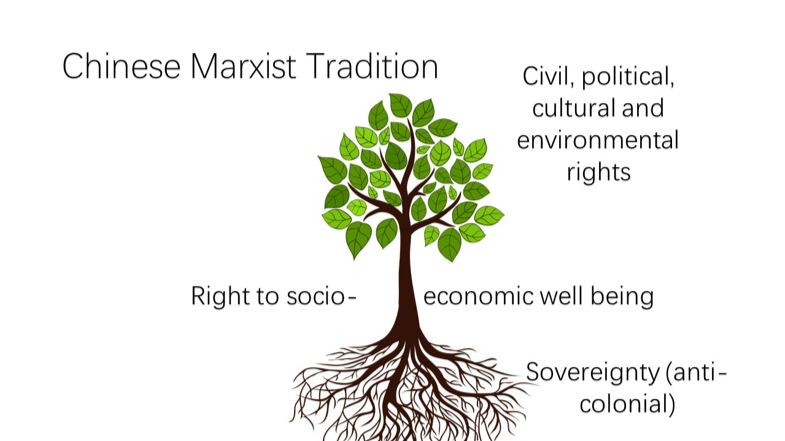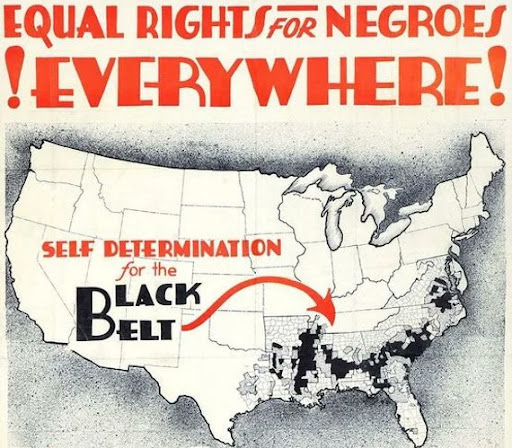More languages
More actions
(Image) Tag: Visual edit |
No edit summary Tag: Visual edit |
||
| Line 1: | Line 1: | ||
[[File:Losurdo tree.png|thumb|The [[Marxism|Marxist]] approach to [[human rights]] is grounded in self-determination.]] | |||
[[File:CPUSA black belt poster.png|thumb|[[Communist Party of the United States of America|CPUSA]] poster from 1932 calling for self-determination for Africans in the [[United States of America|United States]]]] | [[File:CPUSA black belt poster.png|thumb|[[Communist Party of the United States of America|CPUSA]] poster from 1932 calling for self-determination for Africans in the [[United States of America|United States]]]] | ||
'''Self-determination''' is the right of a [[nation]] to determine its own future and resist external political or cultural interference. It may consist of autonomy or [[federalism]] within a larger state but also includes the right to full secession and independence.<ref>{{Citation|author=[[Joseph Stalin]]|year=1913|title=Marxism and the National Question|chapter=The National Movement|mia=https://www.marxists.org/reference/archive/stalin/works/1913/03a.htm#s2}}</ref> | '''Self-determination''' is the right of a [[nation]] to determine its own future and resist external political or cultural interference. It may consist of autonomy or [[federalism]] within a larger state but also includes the right to full secession and independence.<ref>{{Citation|author=[[Joseph Stalin]]|year=1913|title=Marxism and the National Question|chapter=The National Movement|mia=https://www.marxists.org/reference/archive/stalin/works/1913/03a.htm#s2}}</ref> | ||
Revision as of 15:49, 12 February 2023


Self-determination is the right of a nation to determine its own future and resist external political or cultural interference. It may consist of autonomy or federalism within a larger state but also includes the right to full secession and independence.[1]
References
- ↑ Joseph Stalin (1913). Marxism and the National Question: 'The National Movement'. [MIA]
